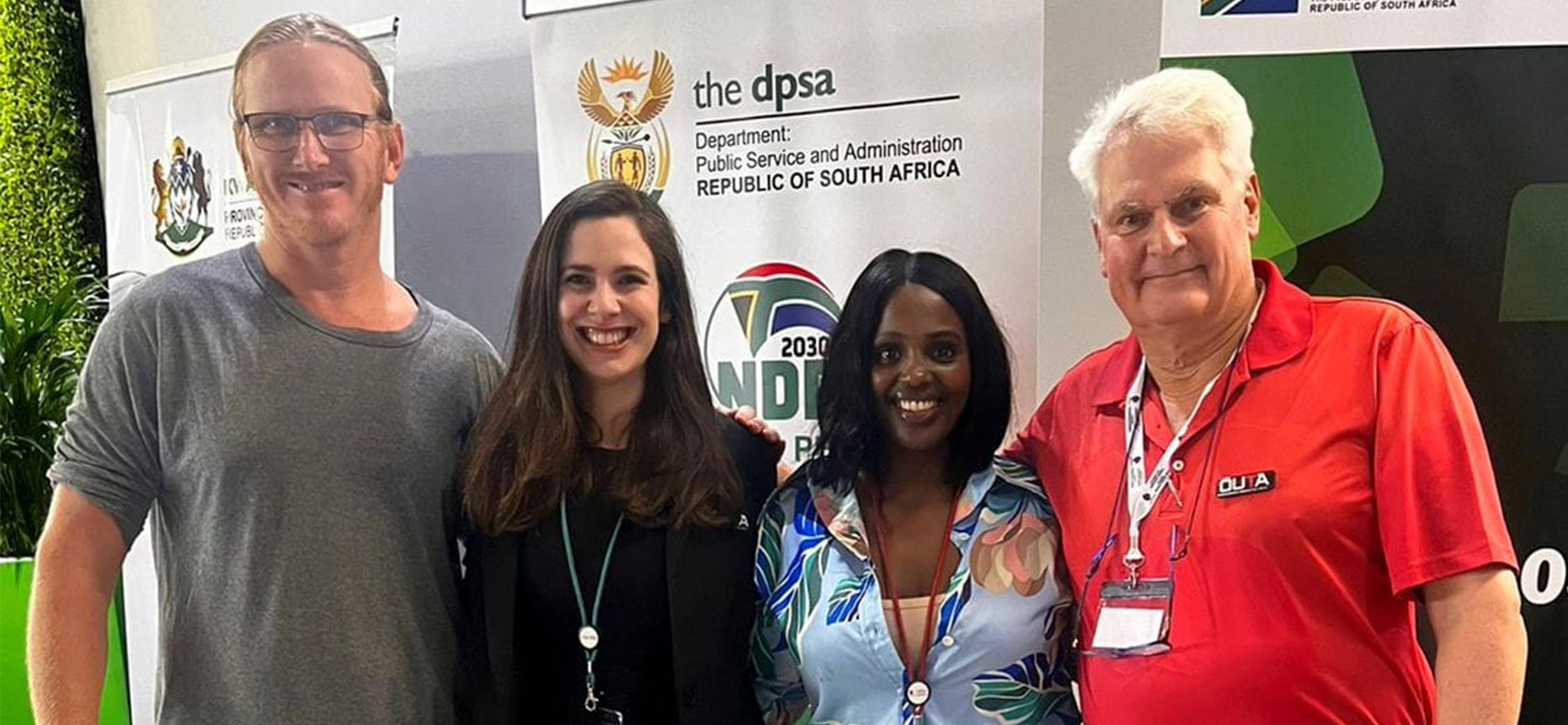.
THE NDP AND THE STATE’S CAPACITY: 10 YEARS ON, AND SO MANY CHALLENGES
Rachel Fischer, Parliamentary Engagement & Research Manager, recently attended the NDP & State Capacity Conference in Durban with Thabile Zuma, project manager in OUTA’s Accountability and Public Governance Division. In addition to presenting a research paper on State Capture, Ethics and Government Performance, Rachel was also asked to join the opening plenary session, and presented in the panel on Ethics, Accountability and State Capture. Read her feedback on the conference.
“I attended the NDP & State Capacity Conference with my colleague Thabile Zuma From 7 to 9 November 2022. Over 100 delegates attended the event, which was organised by the University of KwaZulu-Natal, in partnership with the Department of Public Services and Administration (DPSA). Ms Yoliswa Makhasi, the DG of the DPSA was the conference programme director. She regularly called out poor performance by public servants and pointedly told a representative of the Presidency to hurry up with government’s digitisation process, calling it “shameful” that people still need to apply manually for government jobs in 2022.
Since 1994, the South African government has considered building the capacity of the state and government performance as a critical factor in consolidating South Africa's democracy. The government considered this a priority in the quest to address the triple challenges of poverty, unemployment and inequality. Efforts in this regard have led to the development and adoption of the National Development Plan in South Africa, in September 2012.
Ten years on, the South African state has been challenged in several aspects. These include rising unemployment, poverty and inequality rates, with an emerging discourse on whether South Africa is a failing state or not. During the conference, numerous concerns with the management and leadership of the country were raised.
The Acting Public Protector, Adv Kholeka Gcaleka, took a harsh yet firm tone. In her remarks she reiterated that the PPSA will continue to fight against maladministration and corruption and that it will focus on bread-and-butter concerns, such as service delivery issues and payment to service providers. The unresponsiveness of municipalities was cited as a major issue, especially because they neglect the concerns raised by citizens. According to Gcaleka, it has become quite common that service delivery and administrative justice is either denied or delayed. She stated very clearly that there is a lack in political will, and that the country underperforms on implementation. Gcaleka stressed that ethical accountability and integrity are crucial, but not easily addressed. She emphasized that government must take responsibility and cultivate a pro-active state.
Since 2019 OUTA has been observing Parliamentary processes in general and several Portfolio Committees in particular, to see how effective they really are. We have observed that parliament's oversight of the Executive is poor, with sporadic improvement throughout the years.
The OUTA presentation during the breakaway session on day 2, titled State Capture, Ethics and Government Performance, was based on the annual Parliamentary Oversight Reports published by OUTA since 2019. It also looked at the failure of Parliament to intervene during the State Capture years as well as the institution’s inability to hold Ministers and the President to account.
A recurring theme during the conference was public participation. I participated in the opening plenary session on day 2, and presented in the panel on ethics, accountability and state capture. My presentation provided an overview of OUTA, our projects and vision to achieve a prosperous country with an organised, engaged and empowered civil society that ensures responsible use of tax revenues throughout all levels of Government. Active citizenship was highlighted, with a call to stakeholders to break down silos and start collaborating across all sectors.
In the same plenary session, Dr Somadoda Fikeni, Chairperson of the Public Service Commission (PSC), presented on the ethical dilemma in the public service. He presented new pathways toward redemption of the public sector integrity.
Ms Bongi Ngoma, the Head of Audit of the National Office of the Auditor General, highlighted the major challenges in state performance, while Ms Tasneem Carrim from the Government Communication and Information System (GCIS), presented public perceptions in Government Performance.
